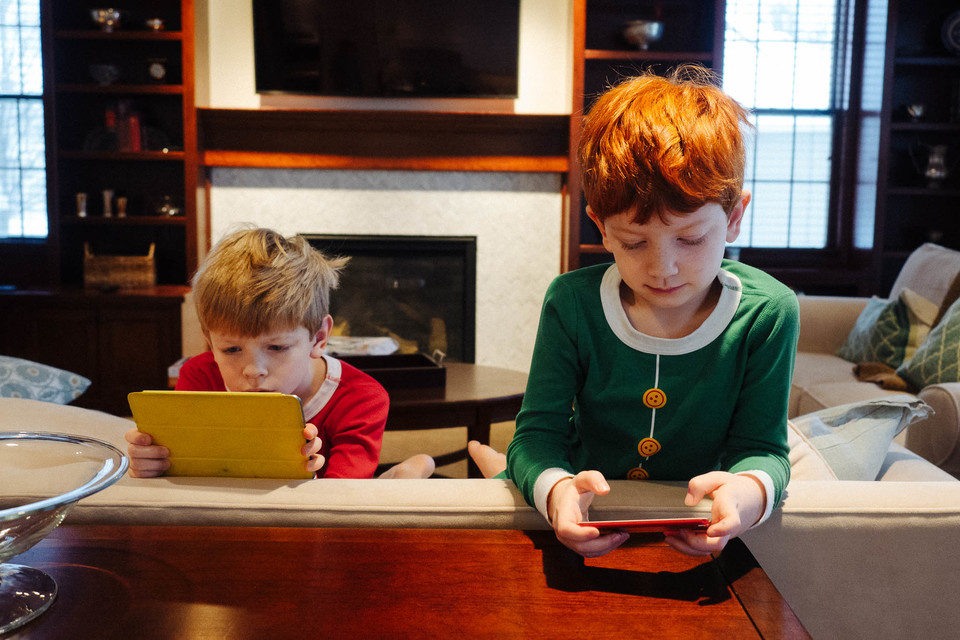
How Should We Handle Our Child’s Gaming and Smartphone Use?
One of the biggest concerns for parents today is kids’ gaming and smartphone addiction.
“You never study, just play games all day!”
“I’m worried because you’re always on your phone…”
If you’ve ever had these thoughts, you’re not alone.
We’ve faced a similar situation in our home, too.
My fifth-grade son, Jihan, loves gaming.
For him, gaming isn’t just about playing—it’s about socializing with his friends online.
The problem? Time flies when he plays, and it’s hard for him to stop!
Even if he promises to play only until 7 PM, what happens when the time is up?
What should parents do then?
Is Gaming Always Bad?
When we see our kids fully immersed in games, it’s natural to feel concerned.
But seeing gaming as purely negative only creates more conflict between parents and children.
For kids, gaming is another form of social interaction.
They collaborate on missions, develop strategies, and experience the thrill of winning.
Through this, they can actually improve problem-solving skills and teamwork.
So instead of blaming games, maybe we should ask:
Is the real issue the game itself, or how our kids engage with it?
Keeping Promises – Easier Said Than Done?
Jihan and his friend made a deal: “We’ll stop playing at 7 PM!”
But when the time passed, they were still deeply engrossed.
“Just one more round! I’m almost done!”
Then came the familiar cycle:
His mom reminded him of his promise.
“You need to keep your word! If you play games all the time, when will you study?”
Sounds familiar, right?
Kids often lose track of time while playing.
So how can we help them manage their gaming time responsibly?
Is Strict Control the Answer?
Some parents might think,
“Just ban games altogether!”
But excessive control can actually cause kids to rebel and play in secret.
Jihan did the same—when his mom limited his game time, he secretly used an old smartphone to continue playing.
When parents impose strict rules, kids miss the opportunity to learn self-regulation.
So what’s the alternative?
Letting Kids Set Their Own Rules
After much discussion, we decided to create a Gaming Agreement with Jihan.
✅ He set a 2-hour daily limit on gaming.
✅ No gaming unless homework is completed.
✅ If he broke the rules, his computer would be moved to the living room.
The key here? Jihan set these rules himself!
And to our surprise, he followed them much better than before.
Why? Because he felt responsible for his own decisions.
Communication is the Key
Through this experience, we learned an important lesson:
“Rules set without discussion don’t work!”
What parents should do is:
✔ Try to understand their child’s gaming world.
✔ Set rules together, rather than enforcing them unilaterally.
✔ Trust their child and be patient.
Eventually, after many conversations, we decided to buy Jihan a smartphone.
But before handing it over, we went through the process of setting usage rules together.
This changed everything—
Jihan took ownership of his choices and started following the guidelines more independently.
Most importantly, it strengthened the trust between us.
Balancing Gaming and Smartphone Use
Gaming and smartphones are now an inseparable part of kids’ lives.
But simply banning them isn’t the solution.
What parents can do is:
✔ Avoid seeing games as purely negative.
✔ Have open and ongoing conversations with their children.
✔ Guide their kids to set and follow their own rules.
Parenting isn’t about being perfect—it’s about growing and learning together with our children.
What do you think? How do you manage gaming and smartphone use in your home?